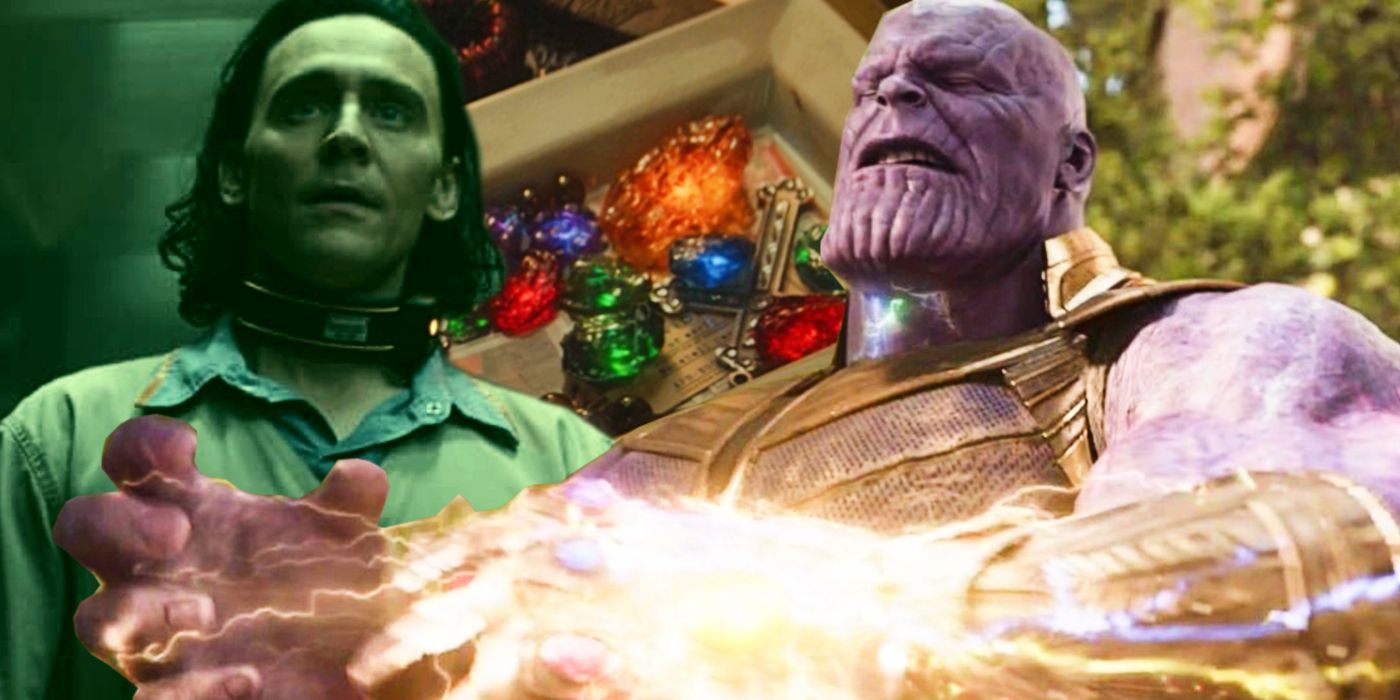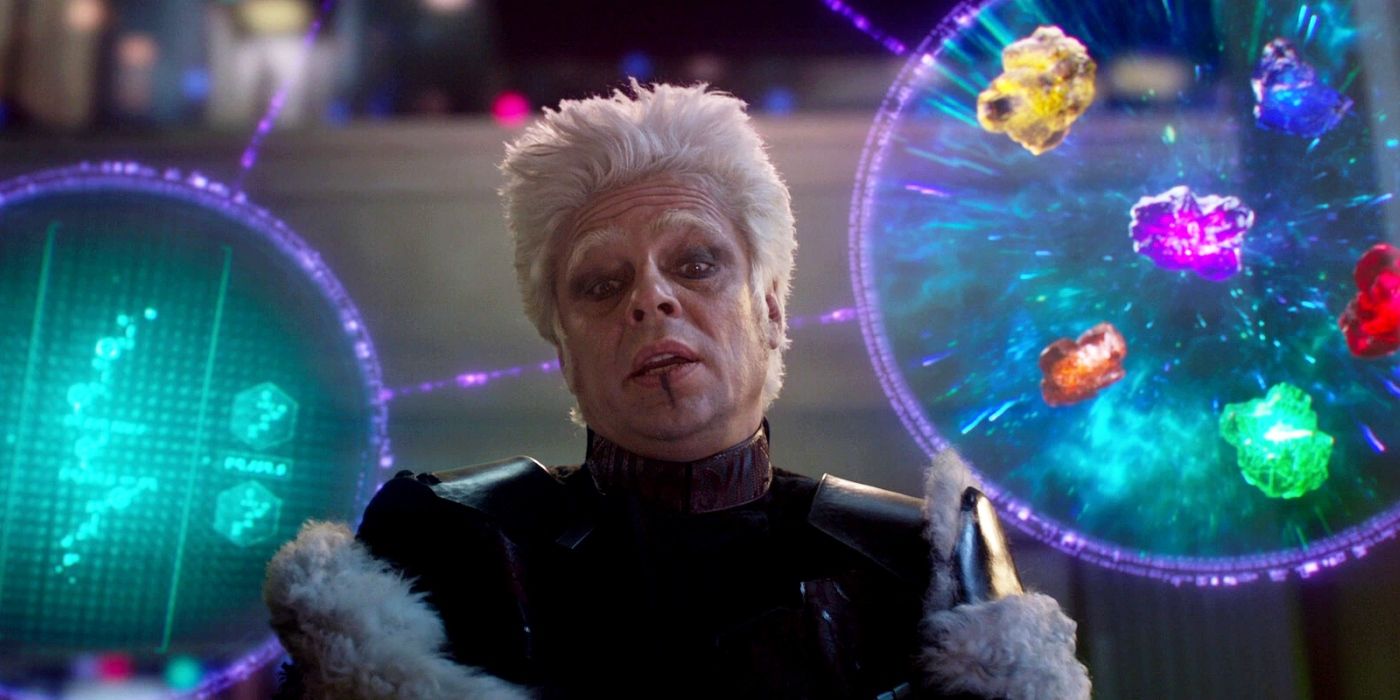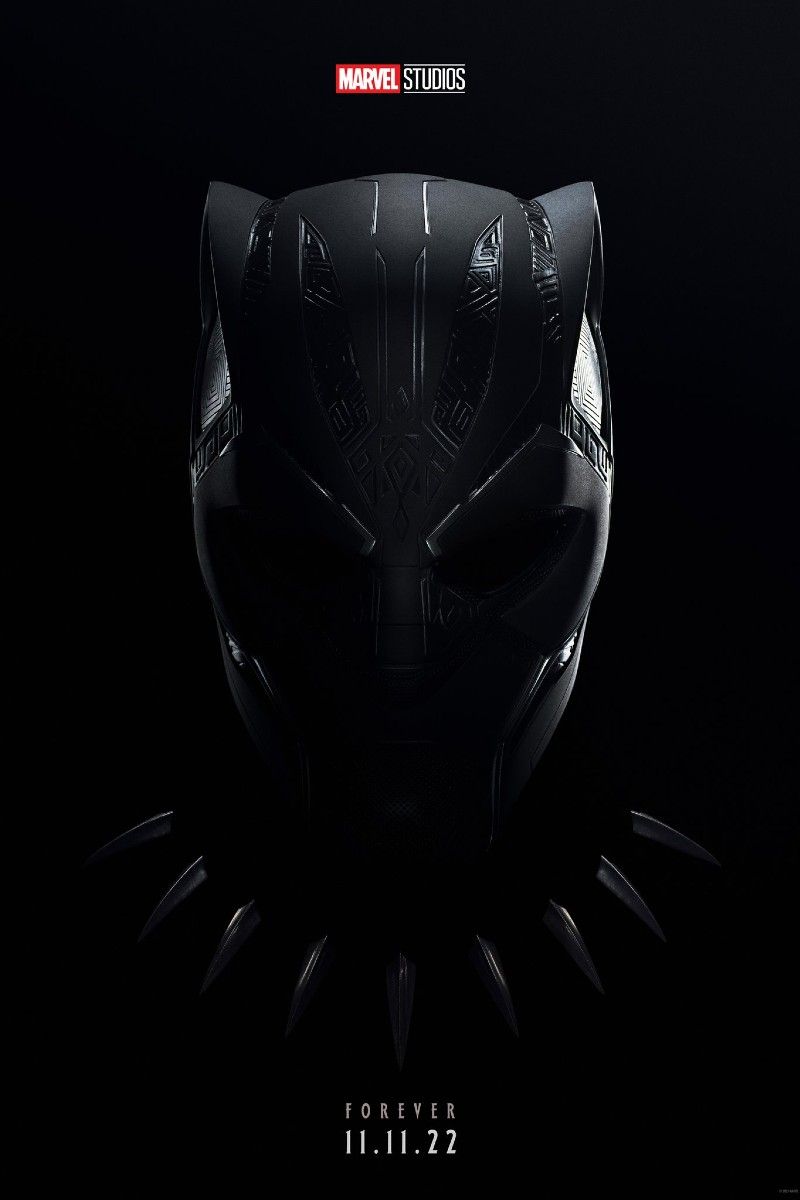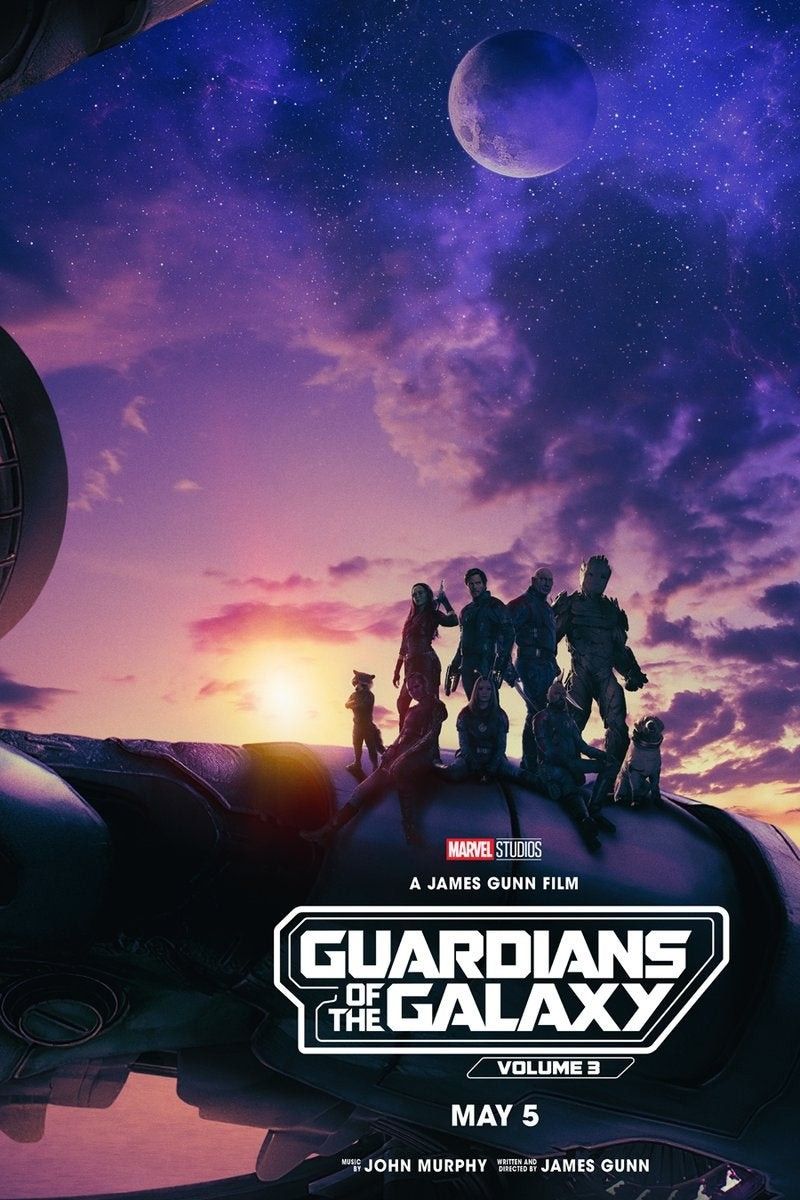Warning: Contains SPOILERS for Loki episode 1, "Glorious Purpose."
With Loki, Marvel confirms that the Infinity Stones no longer matter in the MCU's Phase 4. The Infinity Stones came to define the first decade of the MCU, so much so that Phases 1-3 are known as the Infinity Saga, and there's been plenty to suggest that Phase 4 is continuing those strands. Although Thanos destroyed the stones in Avengers: Endgame, subsequent movies and shows have continued to explore them in greater detail and present them in new contexts.
WandaVision, for instance, developed Scarlet Witch's connection to the Mind Stone, and linked it to Vision's return. Doctor Strange in the Multiverse of Madness will presumably feature the Time Stone in some way, whether it's bringing it back or showing how he can manipulate time without it. Loki's entire existence is thanks to the Space Stone, as the God of Mischief's use of the Tesseract in Endgame is what led to his timeline breach, and thus catching the attention of the Time Variance Authority. And all of Phase 4's slate is, in some way, shaped by the actions of the Mad Titan and the use of the Infinity Stones.
While it is the Tesseract that helps start the plot of Loki, the show itself mocks the idea of Infinity Stones being important. In episode 1, "Glorious Purpose," when Loki his taken to the TVA headquarters, the Space Stone is passed to a desk worker named Casey, who doesn't even realize what it is. Later, a desk drawer reveals multiple Infinity Stones that have been collected by the TVA, with some employees even using them as paperweights. Outside of the so-called sacred timeline, the Infinity Stones, despite their incredible abilities as seen in past MCU movies, are meaningless, worthless, and powerless, which is a strong way for the MCU to move on from them.
Given the context, it makes sense that the Infinity Stones would have no power in Loki. Each stone controls part of the universe, but the TVA exists outside of the normal rules of time and space; they aren't bound to the same existence as the universe of the MCU, and so the Infinity Stones don't have an impact upon it. The Infinity Stones can't affect the timeline when there isn't one in the first place. This also serves to highlight just how powerful the TVA and Time Keepers are, both to Loki himself and to viewers. The Infinity Stones, when assembled by Thanos in the Gauntlet, represented the greatest power in the MCU, and that is nothing to the influence of the Time Keepers.
Moving further into Phase 4, then this presents a way for Marvel to fully start moving beyond the Infinity Stones. The Eye of Agamotto is back in Doctor Strange 2, even though Thanos destroyed it even before he did the Time Stone, and could suggest Strange has other ways of using time. With the multiverse coming into play too, as well as elements such as the Quantum Realm getting further attention, then the MCU has a multitude of ways to impact and mess with timelines and the very nature of the universe, without repeating things seen before with the Infinity Stones. Loki's Infinity Stones joke, then, is not only a way of establishing the power of its new additions to the MCU, but of better drawling a line between Phases.
As Loki explores the idea of free will and how much the TVA and Time Keepers pre-determined, then the Infinity Stones' own role in the past, as well as the future, can be questioned, and while they may return again, they don't matter compared to what exists outside of the sacred timeline. Since Phase 4 (and beyond) needs to build on the threat posed by Thanos and eventually outdo it, then this isn't a bad way to begin things.
Loki releases new episodes every Wednesday on Disney+.










